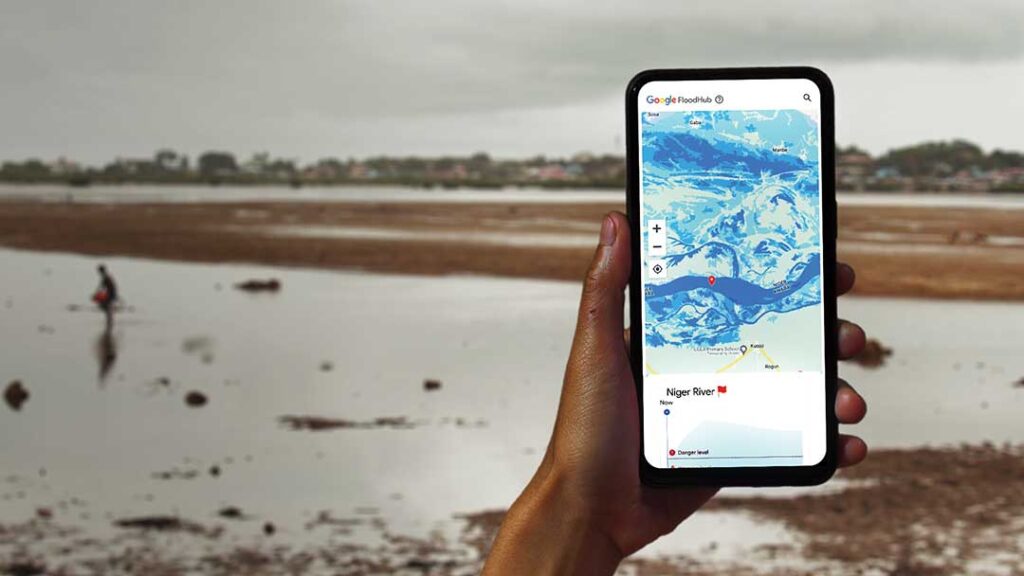ADF STAFF
A new tool uses artificial intelligence to monitor and forecast flooding around the world.
Twenty-three African countries are participating in Google’s Flood Hub artificial intelligence platform. Google launched the platform in 2021, and it expanded to include 80 countries in 2023. It is designed to help disaster management agencies evacuate people up to a week before floodwaters hit and strengthen flood prevention measures in some of the continent’s most at-risk areas.
“Governments, aid organisations, and individuals can use Flood Hub to take timely action and prepare for riverine floods, seeing locally relevant flood data and forecasts up to seven days in advance — an increase from last year, when information was only available 48 hours in advance,” Yossi Matias, Google’s vice president of Engineering and Research and Crisis Response Lead, said in a statement.
Flooding affects more than 250 million people each year, causing $10 billion in damage, according to Google. In 2023, flooding in Ethiopia and Kenya killed 50 people and displaced 30,000 while wiping out thousands of hectares of cropland. Flooding and mudslides in Rwanda killed 127 people, and flooding in Southern Africa caused outbreaks of cholera and malaria.
Flood Hub uses a hydrological model to forecast how much water will move through a river and an inundation model to predict the areas most affected by rising water. It collects data from satellite images, meteorological records and other sources.
“We start by collecting thousands of satellite images to build a digital model of the terrain,” Matias said in a demonstration video. “Based on these maps, we generate hundreds of thousands of simulations of how the river could possibly behave.
“We receive the measurements from the government, and cross those measurements with our simulations,” he added.
The information is free and accessible to anyone who uses Google Maps. The company is using similar technology to forecast and track wildfires.
Participating African countries are Angola, Burkina Faso, Burundi, Cameroon, Chad, Côte d’Ivoire, the Democratic Republic of the Congo, Eswatini, Ghana, Guinea, Guinea-Bissau, Lesotho, Liberia, Madagascar, Malawi, Namibia, Nigeria, Rwanda, Senegal, Sierra Leone, South Africa, South Sudan and Zimbabwe.

